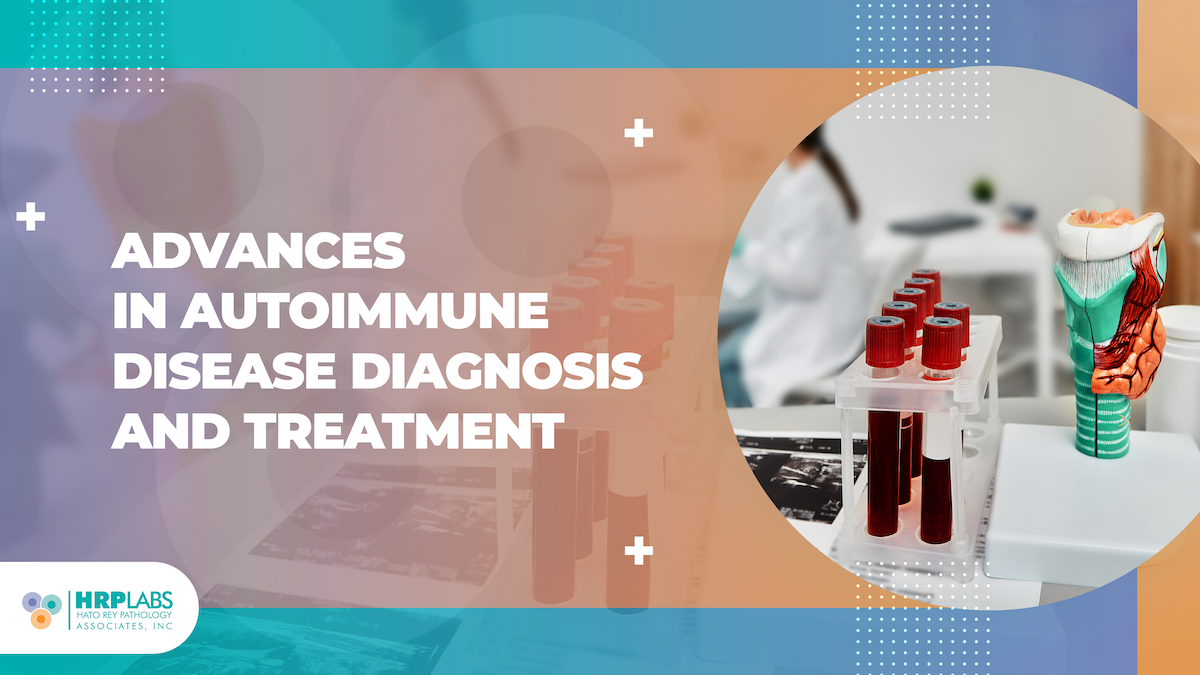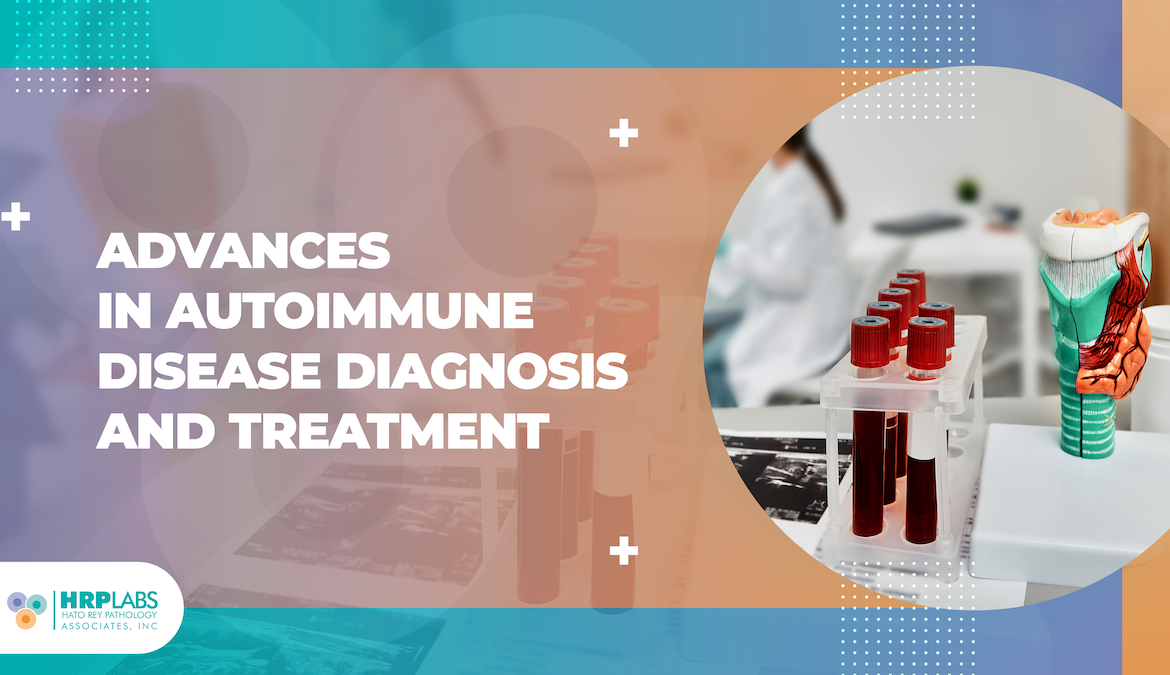
Autoimmune diseases pose a significant challenge for both patients and healthcare professionals. Fortunately, advances in diagnosis and therapeutic strategies, driven by innovative laboratory analyses, are changing the way these diseases are managed. This article explores the latest techniques and emerging therapeutic strategies in the field of autoimmune diseases.
What are Autoimmune Diseases?
Autoimmune diseases occur when the immune system mistakenly attacks the body’s own tissues. Common examples include rheumatoid arthritis, systemic lupus erythematosus, and multiple sclerosis. Diagnosing and managing these conditions requires precise laboratory tests and personalized treatments.
Advances in Diagnostic Techniques
- Genetic Biomarkers
The use of genetic biomarkers has enabled earlier and more precise detection of autoimmune diseases. These biomarkers can identify specific genetic variations that predispose an individual to developing an autoimmune disease, facilitating early intervention. - Autoantibody Testing
Autoantibody testing is essential for diagnosing autoimmune diseases. Recently, advanced techniques have been developed to detect autoantibodies with greater precision and at lower levels, significantly improving diagnostic accuracy. - Microbiome Analysis
The gut microbiome plays a crucial role in regulating the immune system. Advances in microbiome analysis have provided new insights into how alterations in gut flora can influence the development of autoimmune diseases, allowing for more comprehensive diagnostics.
Emerging Therapeutic Strategies
- Biological Therapies
Biological therapies, such as TNF inhibitors and T-cell modulators, have transformed the treatment of autoimmune diseases. These therapies are designed to target specific components of the immune system, reducing inflammation and improving symptoms with minimal effects on uninvolved systems or tissues. - Gene Therapy
Gene therapy is emerging as a promising option for treating autoimmune diseases. This strategy involves modifying defective genes or introducing new genes to correct abnormal immune responses. - Personalized Immunotherapy
Personalized immunotherapy tailors treatment to the specific characteristics of each patient’s immune system. Using detailed laboratory analyses, doctors can design more effective treatments with fewer side effects.
Challenges and Future of Diagnosis and Management
Despite significant advances, challenges remain in diagnosing and managing autoimmune diseases. The heterogeneity diverse nature of these diseases and the variability of symptoms among patients complicate the development of universal treatments. However, continued progress in research and technology promises a brighter future for those affected by these conditions.
Frequently Asked Questions (FAQs)/h3>
- How common are autoimmune diseases?
Autoimmune diseases are relatively common, affecting millions of people worldwide. In Puerto Rico, conditions like systemic lupus erythematosus have notable prevalence. - How are autoimmune diseases diagnosed?
Diagnosis typically involves a combination of medical history, physical exams, and laboratory tests, including the detection of autoantibodies and genetic biomarkers. - What treatments are available for autoimmune diseases?
Treatments may include immunosuppressive medications, biological therapies, gene therapy, and personalized immunotherapy. - Can autoimmune diseases be cured?
Currently, most autoimmune diseases have no cure, but advances in treatment have significantly improved symptom management and quality of life for patients.
Advances in the diagnosis and management of autoimmune diseases are transforming how we understand and treat these conditions. Through innovations in laboratory analysis and the development of personalized therapies, we are one step closer to providing patients with a healthier, symptom-free life.
For more information or assistance, feel free to contact us at 787-765-7320 or email us at customerservice2@hrplabs.com. We are here to help you!

